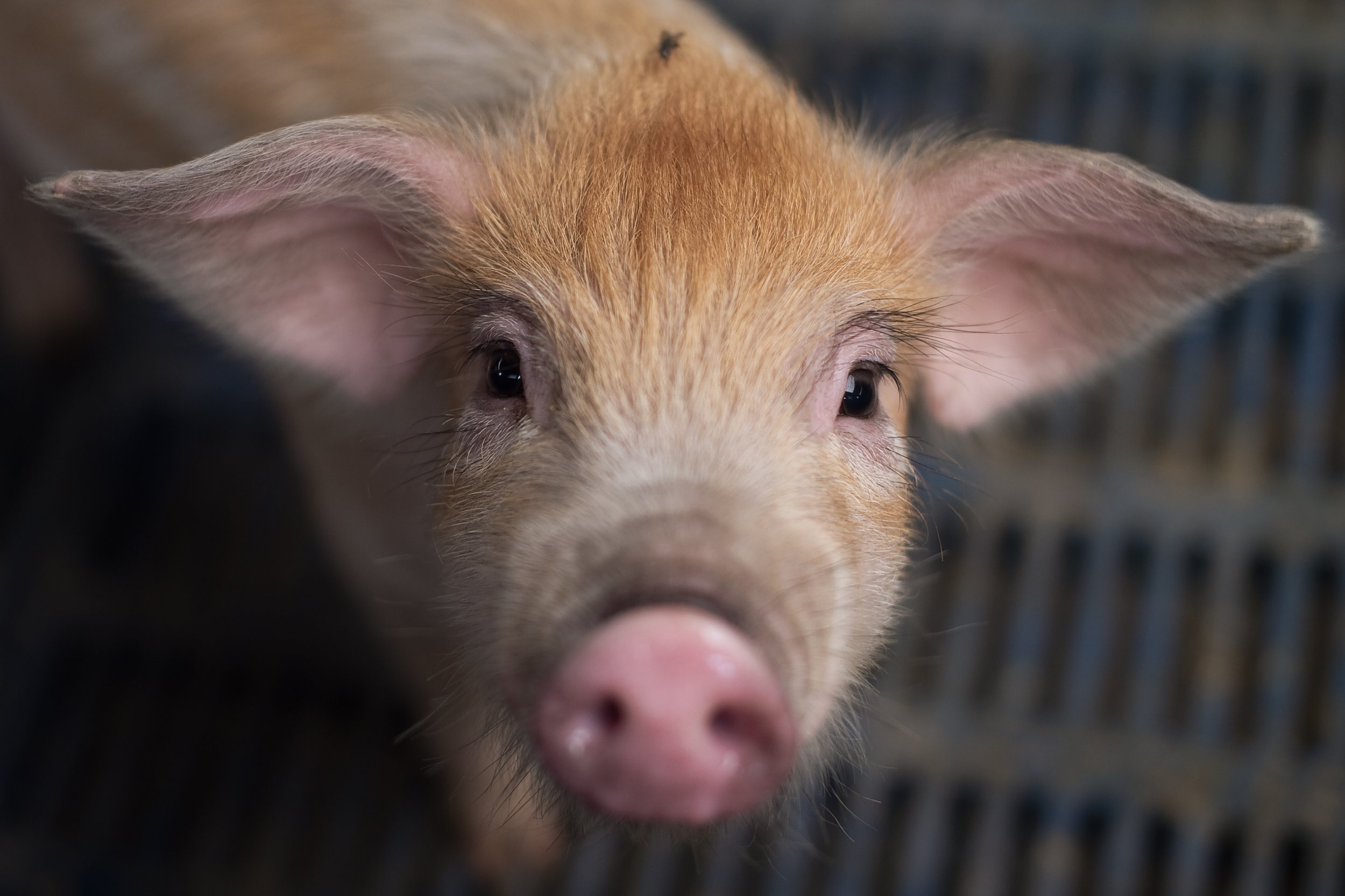
Scientists fear that a recently identified pig virus could infect people, after it was found to hijack human cells in lab tests.
Porcine deltacoronavirus (PDCoV) was first identified in 2012 in pigs in China, but was not linked to a disease at that time. By 2014, was detected for the first time in the U.S. during a pig diarrhea outbreak in Ohio, and has since been reported in several other countries. The disease can cause acute diarrhea and vomiting in young pigs, and can be fatal.
It has not infected other animals but experts are particularly concerned by its similarity to the viruses which caused the SARS and MERS outbreaks. According to the World Health Organization, the SARS outbreak of 2002 and 2003—which started in China and killed 774 people—while the ongoing MERS outbreak in Saudi Arabia has claimed more than 700 lives.
Dr. Linda Saif, distinguished university professor at the Ohio State University Department of Veterinary Preventive Medicine and a co-author of the study, highlighted in a statement that the virus was found in various birds before it presented in pigs.
"We're very concerned about emerging coronaviruses and worry about the harm they can do to animals and their potential to jump to humans," said the researcher, who is also an investigator at Ohio State's food animal health research program at the Ohio Agricultural Research and Development Center (OARDC).
Dr. Scott Kenney, lead researcher and an assistant professor of veterinary preventive medicine based in the food animal health research program at OARDC, explained in a statement that a virus can jump across species if it can bind to the receptors on its cells.
"A receptor is like a lock in the door. If the virus can pick the lock, it can get into the cell and potentially infect the host," he said.
In what is believed to be the first study to indicate that the virus could transfer between species, researchers investigated a receptor called aminopeptidase N, which the virus could latch onto. They found that the virus was able to bind to the receptor in chicken, cat and human cells.
"From that point, it's just a matter of whether it can replicate within the cells and cause disease in those animals and humans," Dr. Kenney said.
"We know from other coronaviruses that these receptors on the cells are used and that they're found in the respiratory and digestive tracts of a number of different animals. Now we know that this new virus could go into cells of different species, including humans."
However, Dr. Saif stressed that the virus has only infected cells of humans and other animals in a controlled laboratory setting.
"This doesn't prove that this virus can infect and cause disease in these other species, but that's something we obviously want to know," she said.
Moving forward, researchers hope to uncover whether the virus has infected humans, and to understand if a sick pig can transmit the virus to other animals, and visa versa.
Dr. Kenney urged members of the public: "Please don't panic!"
He told Newsweek: "Right now normal people don't have to change any aspects of their daily lives, no human outbreak is imminent that we can see. This virus has been around since at least 2012 and we haven't seen any deaths from transmission to humans." He added that agricultural workers and veterinarians should be "even more vigilant" and follow farm biosecurity protocols.
"The virus seems to mostly infect young pigs, so pork products are safe and you should continue enjoying them, cooked properly," he said.
Dr. Christopher Coleman, a fellow at the University of Leeds School of Molecular and Cellular Biology who was not involved in the study, told Newsweek the study is significant as it further demonstrates coronaviruses have the potential to infect a range of species, including humans, in a process called 'zoonosis'.
"In the context of human zoonotic potential, perhaps the biggest downfall [of the study] (and therefore, also why readers should not be immediately concerned) is that there is no evidence that PDCoV has actually infected a real human or, even if it does infect, [would] cause any kind of noticeable disease.
"The most important point is that, while critical to virus replication, entering a cell is not always a sign that a disease is caused," he explained. "In a real human, the virus would have to be delivered in the 'ideal' way, infect the correct cells and overcome any immune response at a minimum. To spread, the virus would also need to become accessible to other humans in some way. Even if all these things happened, it is still possible that the disease would be 'mild'—i.e. you might feel a bit rough, but probably wouldn't need a doctor."
Dr. Coleman added that saying whether or not the virus could mutate to be more dangerous to humans would be "complete speculation. In this case there may be less selection pressure on the virus, because it already infects so many cell types," he said.
This piece has been updated to include comment from Dr. Christopher Coleman and Dr. Kenney.
Uncommon Knowledge
Newsweek is committed to challenging conventional wisdom and finding connections in the search for common ground.
Newsweek is committed to challenging conventional wisdom and finding connections in the search for common ground.
About the writer
Kashmira Gander is Deputy Science Editor at Newsweek. Her interests include health, gender, LGBTQIA+ issues, human rights, subcultures, music, and lifestyle. Her ... Read more
To read how Newsweek uses AI as a newsroom tool, Click here.






